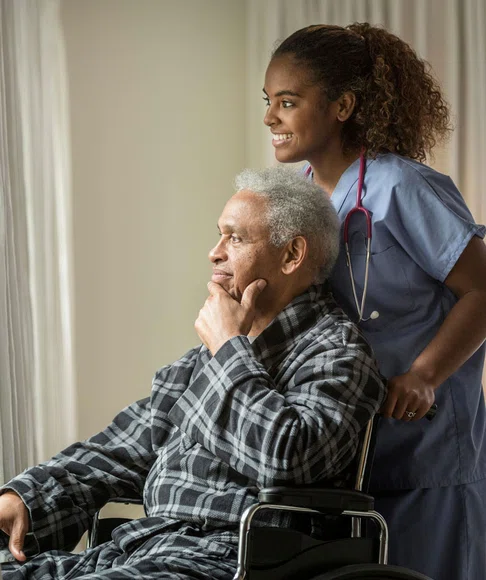© 2025. Houston Methodist, Houston, TX. All rights reserved.


In this
issue

WELCOME
NURSING SCIENCE

Holistic Care and the Use of Aromatherapy in Clinical Practice

Utilizing Music Therapy in Nursing Research
EDUCATION

Spiritual Care and Nursing Across the Houston Methodist System

Beyond Medicine: The Impact of Pet Therapy in Healthcare
PRACTICE

Narration of Care: A Bridge to Whole-Person Healing

Sweet Dreams, Sharp Minds: How Holistic Nursing and Sleep Hygiene Are Teaming Up to Tackle Delirium
PROFESSIONAL DEVELOPMENT
MAGNET
FROM OUR TEAMS

ABOUT DISCOVERN
PRACTICE
Sweet Dreams, Sharp Minds: How Holistic Nursing and Sleep Hygiene Are Teaming Up to Tackle Delirium
By Rejani Nair, BSN, RN, CCRP, Clinical Trials Manager, Academic Office of Clinical Trials (AOCT), Houston Methodist Research Institute
By Rejani Nair, BSN, RN, CCRP, Clinical Trials Manager, Academic Office of Clinical Trials (AOCT), Houston Methodist Research Institute


Moreover, these smart room technologies significantly streamline communication between nursing staff and other healthcare providers. They allow for quicker updates and alerts, ensuring everyone involved in a patient’s care is on the same page. As noted in the McKinsey survey, nurses’ workload often includes tasks that, when optimized, lead to increased efficiency and improved patient outcomes.
By adopting smart room technology, hospitals enhance their operational efficiency and contribute to a higher level of job satisfaction among nursing staff. When nurses can efficiently manage their tasks through technology, they experience reduced stress, increased job fulfillment and a more significant opportunity to connect meaningfully with their patients. This is particularly important in nursing, where strong patient-nurse relationships are integral to providing compassionate, effective care. At Houston Methodist West, pre-and post-implementation questionnaires will be included to evaluate staff perceptions of the Vibe Health smart room platform, explicitly focusing on time management and awareness of patients’ needs. Additionally, self-report questionnaires will be used to evaluate patients’ perceptions of the Vibe Health smart room platform, with questions addressing awareness of the care team, pain management and mobility goals.
Delirium might be a common visitor in hospital rooms—especially among older adults—but it doesn’t have to be a permanent guest. Nurses are now leading the charge with a holistic approach that’s as compassionate as evidence based. Sleep hygiene is at the heart of this movement—a simple yet powerful tool in the fight against hospital-acquired delirium.
Holistic nursing recognizes that healing isn’t just about medications and procedures; it’s about nurturing the whole person. That means quieter nights, softer lights and routines that feel more like home than hospital. And guess what? It’s working.
Enter the Patient Centered Outcomes Research Institute (PCORI) funded trial: Improving In-Hospital Sleep Hygiene to Prevent and Curtail Delirium Among Older Adults, a groundbreaking study happening in our Houston Methodist (HM) hospitals. Led by a powerhouse team of researchers and clinicians, this step-wedge cluster randomized trial over five years tests a Multi-modal Sleep Hygiene bundle across 11 units at Houston Methodist Hospitals in the Texas Medical Center, HM Baytown, HM Sugar Land and HM West. The bundle includes:
So next time you dim the lights or hush a hallway conversation, remember—you’re not just helping someone sleep—you might be helping them stay sharp, safe and on the road to recovery.
- Noise reduction
- Light modifications
- Reduced interruptions from 10 p.m. until 5 a.m. through clustered nursing care
- Non-pharmacologic sleep aids
- Rescheduling non-time-sensitive medications to daytime
- Staff education
- Delirium-free days
- Length of stay
- Discharge disposition
- Safety metrics (e.g., falls, acute deterioration events)
Holistic care isn’t just a philosophy—it’s a practice. And it starts with us.










